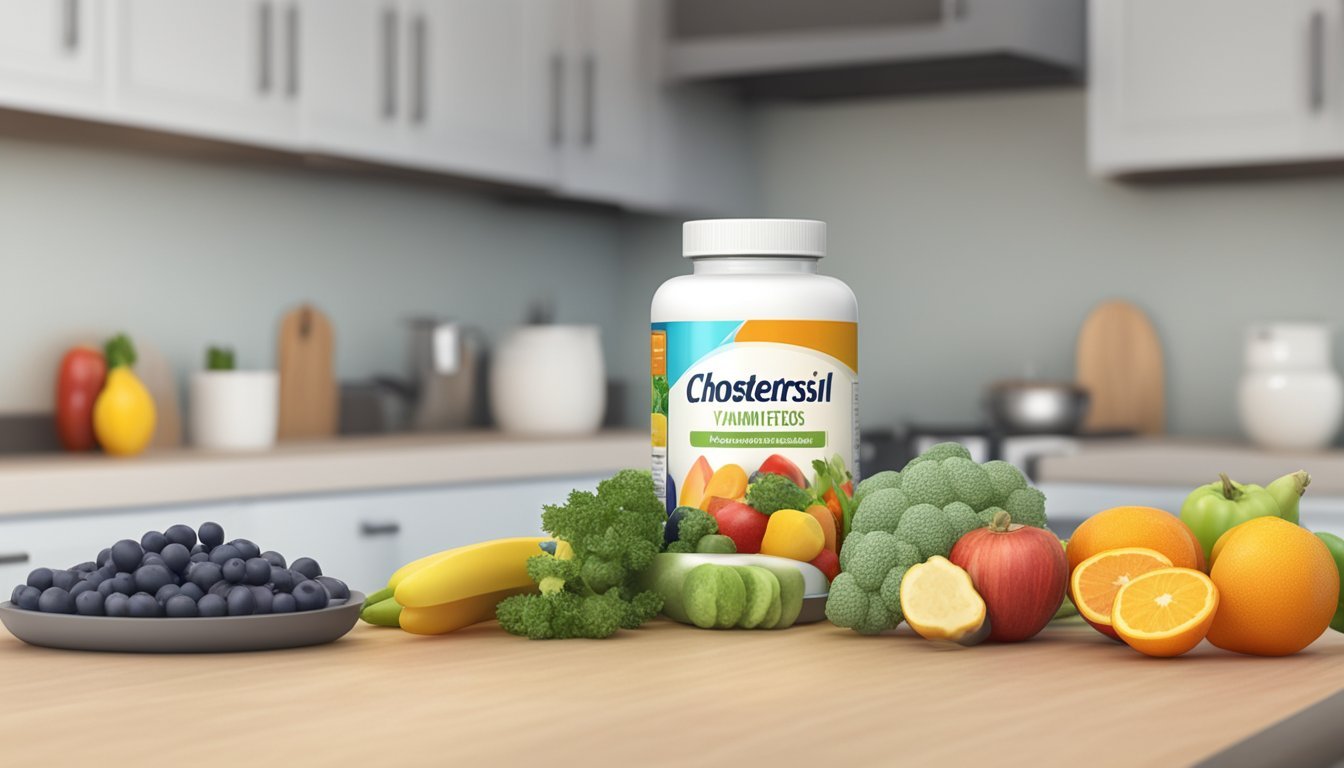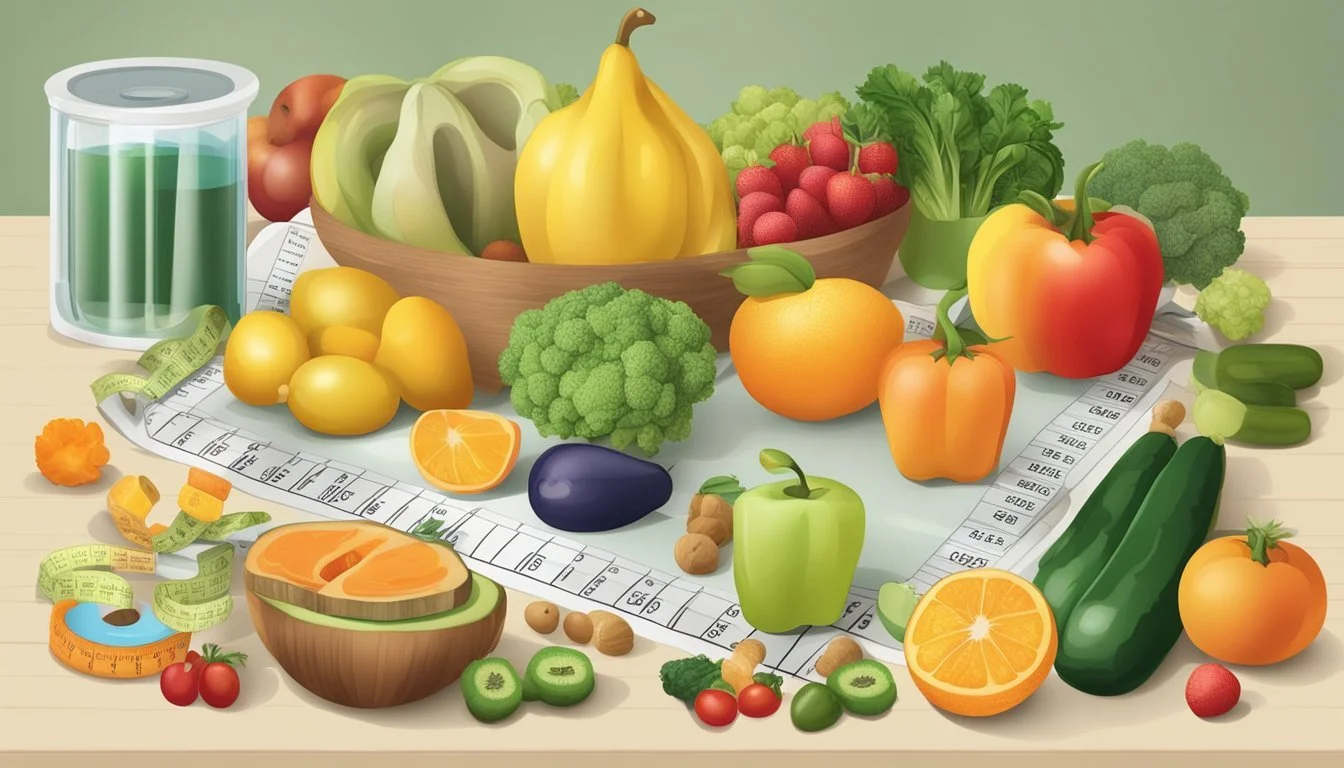Natural Cholesterol Control: The Truth About Vitamin Supplements and Heart Health
Cholesterol management is a crucial aspect of cardiovascular health. While dietary changes and medications are often the first line of defense, many people turn to vitamin supplements as a natural approach to lowering their cholesterol levels. These supplements can potentially help reduce low-density lipoprotein (LDL) cholesterol, also known as "bad" cholesterol, and increase high-density lipoprotein (HDL) cholesterol, the "good" cholesterol.
Several vitamin supplements have shown promise in helping to lower cholesterol, including niacin, omega-3 fatty acids, and berberine. Niacin, a B vitamin, has been used for decades to improve cholesterol profiles by raising HDL levels and lowering LDL and triglycerides. Omega-3 fatty acids, found in fish oil supplements, may help reduce triglycerides and increase HDL cholesterol. Berberine, a compound found in certain plants, has garnered attention for its potential to lower LDL cholesterol and triglycerides.
It's important to note that while these supplements can be beneficial, they should not replace a healthy diet, regular exercise, or prescribed medications. Consulting with a healthcare professional before starting any new supplement regimen is essential to ensure safety and efficacy, especially for those already taking cholesterol-lowering medications.
Understanding Cholesterol and Its Types
Cholesterol plays a vital role in the body but can pose health risks when levels become imbalanced. Different types of cholesterol affect the body in unique ways, and various factors influence overall cholesterol levels.
The Role of Cholesterol in the Body
Cholesterol is a waxy substance found in every cell of the human body. It serves several crucial functions:
• Producing hormones like testosterone and estrogen • Synthesizing vitamin D • Aiding in digestion by creating bile acids
The liver manufactures most of the cholesterol in the body, while the rest comes from dietary sources. Despite its importance, excess cholesterol can lead to health problems.
LDL vs. HDL: Balancing Cholesterol Levels
Two main types of cholesterol circulate in the bloodstream:
Low-Density Lipoprotein (LDL): Often called "bad" cholesterol, LDL can build up in artery walls, increasing the risk of heart disease and stroke.
High-Density Lipoprotein (HDL): Known as "good" cholesterol, HDL helps remove excess cholesterol from the bloodstream.
Maintaining a healthy balance between LDL and HDL is crucial for cardiovascular health. Doctors often focus on lowering LDL levels while raising HDL levels to reduce heart disease risk.
Factors Influencing Cholesterol Levels
Several factors can affect cholesterol levels:
• Diet: Consuming foods high in saturated and trans fats can raise LDL levels. • Physical activity: Regular exercise can help increase HDL levels. • Genetics: Some people inherit genes that cause high cholesterol production. • Age and gender: Cholesterol levels tend to rise with age, and men generally have higher levels than women before menopause. • Weight: Being overweight or obese can lower HDL and raise LDL and triglycerides.
Lifestyle changes and medications can help manage cholesterol levels. Regular check-ups and blood tests are essential for monitoring cholesterol and assessing heart disease risk.
Dietary Approaches to Lower Cholesterol
A heart-healthy diet plays a crucial role in managing cholesterol levels. Focusing on specific foods, understanding dietary fats, and implementing effective nutritional strategies can significantly impact lipid profiles.
Foods to Embrace for a Heart-Healthy Diet
Fruits and vegetables are essential for lowering cholesterol. They provide antioxidants and fiber, which help reduce LDL cholesterol. Berries, citrus fruits, and leafy greens are particularly beneficial.
Whole grains like oats and barley contain beta-glucans, a type of soluble fiber that can lower LDL cholesterol. Aim for at least three servings of whole grains daily.
Nuts, especially almonds and walnuts, are rich in heart-healthy fats and plant sterols. Consuming a handful of nuts daily can improve cholesterol levels.
Fatty fish such as salmon, mackerel, and sardines provide omega-3 fatty acids, which can raise HDL cholesterol and lower triglycerides.
Understanding Dietary Fats and Fiber
Saturated fats, found in red meat and full-fat dairy products, can raise LDL cholesterol. Limit intake to less than 7% of daily calories.
Polyunsaturated and monounsaturated fats, found in olive oil, avocados, and nuts, can help lower LDL cholesterol when used to replace saturated fats.
Soluble fiber forms a gel-like substance in the digestive tract, binding to cholesterol and removing it from the body. Aim for 5-10 grams of soluble fiber daily.
Trans fats, often found in processed foods, should be avoided entirely as they raise LDL cholesterol and lower HDL cholesterol.
Nutritional Strategies for Optimizing Lipid Levels
Incorporate plant sterols and stanols into your diet. These compounds, found naturally in plants and added to some foods, can help block cholesterol absorption.
Consider a Mediterranean-style diet, which emphasizes fruits, vegetables, whole grains, lean proteins, and healthy fats. This eating pattern has been shown to improve lipid profiles.
Limit alcohol consumption, as excessive intake can raise triglyceride levels. If you drink, do so in moderation.
Maintain a healthy weight through a balanced diet and regular physical activity. Even modest weight loss can significantly improve cholesterol levels.
Key Nutritional Supplements for Cholesterol Management
Several nutritional supplements have shown promise in supporting healthy cholesterol levels. These include plant-based compounds, essential fatty acids, fiber sources, and specific vitamins.
Plant Sterols and Stanols
Plant sterols and stanols are naturally occurring compounds found in various plants. These substances have a structure similar to cholesterol, which allows them to compete with cholesterol for absorption in the digestive system.
Studies have shown that consuming 2-3 grams of plant sterols or stanols daily can lower LDL cholesterol by 6-15%. Foods fortified with these compounds, such as certain margarines, yogurts, and juices, are available. Supplements in capsule or tablet form are also options.
It's important to note that while plant sterols and stanols can reduce LDL cholesterol, they should be used in conjunction with a healthy diet and lifestyle for optimal results.
Omega-3 Supplements: Benefits and Sources
Omega-3 fatty acids, particularly EPA (eicosapentaenoic acid) and DHA (docosahexaenoic acid), have been linked to improved heart health and cholesterol management. These essential fats can help reduce triglycerides and increase HDL (good) cholesterol levels.
Fish oil is a popular source of omega-3s. Doses of 2-4 grams per day have been shown to lower triglycerides by 20-50%. Algae-based supplements are available for vegetarians and vegans.
Other sources of omega-3s include:
Fatty fish (salmon, mackerel, sardines)
Flaxseeds and chia seeds
Walnuts
While omega-3 supplements can be beneficial, it's crucial to consult a healthcare provider before starting any new supplement regimen.
The Case for Fiber Supplements
Soluble fiber has been shown to effectively lower LDL cholesterol levels. It works by binding to cholesterol in the digestive system, preventing its absorption.
Psyllium, a type of soluble fiber, is particularly effective. Studies have shown that taking 10-20 grams of psyllium daily can lower LDL cholesterol by 7% or more.
Other fiber supplements that may help include:
Beta-glucans (found in oats and barley)
Methylcellulose
Guar gum
Fiber supplements should be taken with plenty of water and gradually increased to avoid digestive discomfort.
Niacin and Other Cholesterol-Lowering Vitamins
Niacin, also known as vitamin B3, has been used for decades to improve cholesterol profiles. It can lower LDL cholesterol and triglycerides while raising HDL cholesterol.
High doses of niacin (1-3 grams daily) are typically required for cholesterol benefits. However, these doses can cause side effects such as flushing and liver problems, so medical supervision is essential.
Other vitamins and supplements that may support healthy cholesterol levels include:
Vitamin C: May help raise HDL cholesterol
Coenzyme Q10: May improve the effectiveness of statin medications
Red yeast rice: Contains compounds similar to statin drugs
It's crucial to remember that supplements should not replace prescribed medications or a healthy lifestyle. Always consult a healthcare provider before starting any new supplement regimen.
Exercise and Lifestyle Interventions
Exercise and lifestyle changes play a crucial role in managing cholesterol levels. These interventions can significantly impact lipid profiles and support overall heart health.
Physical Activity as a Pillar of Cholesterol Control
Regular exercise is essential for maintaining healthy cholesterol levels. Aerobic activities like brisk walking, jogging, cycling, and swimming can help raise HDL (good) cholesterol while lowering LDL (bad) cholesterol and triglycerides.
Aim for at least 150 minutes of moderate-intensity exercise or 75 minutes of vigorous-intensity exercise per week. This can be spread across multiple sessions.
Resistance training, such as weightlifting, can also contribute to improved cholesterol profiles. Incorporate strength exercises 2-3 times per week for optimal benefits.
Consistency is key. Even small amounts of daily physical activity can make a difference in managing cholesterol levels over time.
Weight Management and Its Impact on Lipids
Maintaining a healthy weight is crucial for cholesterol control. Excess body fat, especially around the waist, can negatively affect lipid levels.
Losing just 5-10% of body weight can lead to significant improvements in cholesterol profiles. This reduction can lower LDL cholesterol and triglycerides while increasing HDL cholesterol.
A combination of calorie control and increased physical activity is most effective for sustainable weight loss. Focus on nutrient-dense, low-calorie foods to support weight management efforts.
Regular monitoring of body weight and waist circumference can help track progress and motivate continued efforts.
Lifestyle Modifications to Support Heart Health
Adopting heart-healthy habits extends beyond exercise and weight management. Quitting smoking can rapidly improve HDL cholesterol levels and overall cardiovascular health.
Limiting alcohol consumption is also beneficial. Moderate intake (up to one drink per day for women, two for men) may raise HDL cholesterol, but excessive drinking can increase triglycerides.
Stress management techniques like meditation, deep breathing, or yoga can help reduce stress-induced cholesterol fluctuations.
Adequate sleep (7-9 hours per night) is often overlooked but crucial for maintaining healthy cholesterol levels and supporting overall metabolic health.
Incorporating these lifestyle changes alongside a balanced diet can significantly improve cholesterol profiles and reduce the risk of heart disease.
Medical Treatments and Considerations
Medications play a crucial role in managing high cholesterol when lifestyle changes alone are insufficient. Statins are the primary pharmaceutical option, but other treatments may be considered based on individual needs and risk factors.
When to Consider Medications for Cholesterol
Healthcare professionals may recommend cholesterol-lowering medications when dietary changes and exercise fail to bring levels into a healthy range. This is especially true for individuals with multiple risk factors for heart disease or a history of cardiovascular events.
The American Heart Association suggests medication for:
LDL cholesterol above 190 mg/dL
Diabetes patients over 40 with LDL above 70 mg/dL
Those with a 10-year heart attack risk greater than 7.5%
Factors like age, family history, and existing health conditions influence this decision.
Statin Use and Its Implications
Statins are the most prescribed cholesterol-lowering medications. They work by blocking a substance the liver needs to produce cholesterol, reducing LDL levels by 25-55%.
Common statins include:
Atorvastatin (Lipitor)
Rosuvastatin (Crestor)
Simvastatin (Zocor)
Statins also have anti-inflammatory properties, potentially reducing the risk of heart attacks and strokes. They may slow the progression of atherosclerosis and stabilize existing plaque buildup in arteries.
Potential Side Effects and Monitoring
While generally safe, statins can cause side effects. Common issues include:
Muscle pain or weakness
Liver enzyme elevation
Increased blood sugar levels
Rare but serious side effects may include:
Rhabdomyolysis (severe muscle breakdown)
Memory problems or confusion
Regular monitoring is essential. Doctors typically order liver function tests before starting statins and periodically thereafter. Patients should report any unusual symptoms promptly.
The FDA recommends periodic blood tests to check liver enzymes and muscle enzyme levels in some cases.
Alternative Medicines in Cholesterol Management
Some patients explore alternative options for cholesterol management. These include:
Red yeast rice: Contains monacolin K, similar to lovastatin. FDA regulation varies.
Plant stanols and sterols: May help lower LDL cholesterol.
Berberine: Found in plants like goldenseal, may reduce LDL and triglycerides.
Omega-3 fatty acids: Can lower triglycerides in those with hypertriglyceridemia.
While some alternatives show promise, efficacy and safety data are often limited. Patients should consult healthcare professionals before using these products, especially alongside prescribed medications.
Interactions between alternative medicines and statins can occur. For example, red yeast rice may increase the risk of statin side effects.




